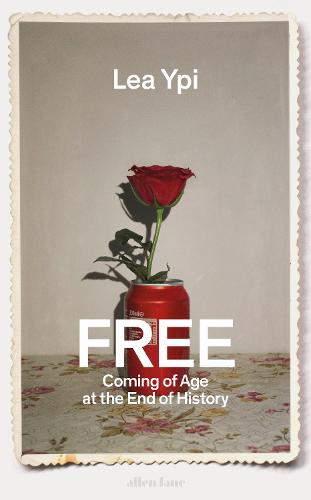Our book group choice for January 2022 is Free by Lea Ypi. For precocious 11-year-old Lea Ypi, Albania’s Soviet-style socialism held the promise of a preordained future, a guarantee of security among enthusiastic comrades.
Free: Coming of Age at the End of History is a memoir by Lea Ypi, a professor of political theory at the London School of Economics. The book tells the story of Ypi’s childhood and adolescence in Albania, from the late 1970s to the early 2000s. During this time, Albania underwent a period of profound political and social upheaval, as it transitioned from a communist dictatorship to a market economy.
Ypi’s memoir is both a personal and political account of this transition. She writes about her own experiences growing up in a repressive regime, as well as the broader challenges facing Albania as it sought to build a new future. The book is also a meditation on the meaning of freedom, and the different ways in which it can be experienced.
Ypi’s memoir begins with her childhood in Tirana, the capital of Albania. She describes a world that was both familiar and strange to her. On the one hand, she lived in a society that was tightly controlled by the state. There were restrictions on travel, freedom of speech, and even the way people dressed. On the other hand, Ypi also experienced a sense of community and belonging that she would later come to miss.
As Ypi grew older, she began to question the regime. She was troubled by the poverty and inequality that she saw around her, and she began to wonder if there was a better way to live. In 1990, the communist regime in Albania collapsed, and Ypi and her family were suddenly free to travel and speak their minds. However, the transition to democracy was not easy. The country was plunged into economic chaos, and there was widespread violence.
Ypi eventually left Albania to study in the United Kingdom. She went on to earn a PhD in political science, and she now teaches at the London School of Economics. In Free, she reflects on her experiences growing up in Albania, and she offers her own insights into the meaning of freedom.
The book is divided into three parts. The first part, “The Land of Eagles,” tells the story of Ypi’s childhood in Albania. The second part, “The Fall,” describes the collapse of the communist regime and the chaos that followed. The third part, “The New Albania,” explores the challenges facing Albania as it sought to build a new future.
Free is a well-written and insightful memoir. Ypi’s writing is clear and engaging, and she does a good job of conveying the atmosphere of Albania during this period of political and social upheaval. The book is also thought-provoking, and it raises important questions about the meaning of freedom.
Free is a valuable addition to the literature on the fall of communism in Eastern Europe. It is a personal and political account of a turbulent time, and it offers a unique perspective on the challenges of building a new society. The book is also a timely reminder of the importance of freedom, and the different ways in which it can be experienced.
Here are some additional thoughts on the book:
- Ypi’s memoir is a valuable historical document, providing a firsthand account of life in Albania under communism and in the aftermath of its collapse.
- The book is also a thoughtful exploration of the meaning of freedom, and the different ways in which it can be experienced.
- Ypi’s writing is clear, engaging, and insightful. She does a good job of conveying the atmosphere of Albania during this period of political and social upheaval.
- Free is a thought-provoking book that raises important questions about the challenges of building a new society.
Discussion Questions
- What does it mean to be free? How does Lea Ypi’s experience of growing up in Albania shape her understanding of freedom?
- How did the communist regime in Albania control its citizens? What were the mechanisms of control, and how did they affect people’s lives?
- What were the positive and negative aspects of life under communism in Albania?
- How did the fall of communism in Albania affect the country? What were the challenges and opportunities that emerged?
- What are the lessons that can be learned from Lea Ypi’s story? How can we apply these lessons to our own lives and societies?
- What are the different ways that people experience freedom? How does freedom vary depending on one’s social class, gender, ethnicity, or nationality?
- What are the limits of freedom? Are there any circumstances in which freedom should be restricted?
- What is the relationship between freedom and responsibility? How do we balance our own freedom with the freedom of others?
- What is the role of the state in protecting freedom? How can the state balance the need for security with the need for freedom?
- What is the role of the individual in protecting freedom? What can we do to make our own lives more free?
- What is the future of freedom? How will the concept of freedom evolve in the 21st century?
- How does Lea Ypi’s story challenge our assumptions about freedom? What new insights does she offer into the meaning of freedom?
- What are the ethical implications of Lea Ypi’s story? What does it mean to be a moral agent in a world where freedom is often compromised?
- How does Lea Ypi’s story relate to other historical and contemporary events? What lessons can we learn from her story about the nature of freedom and the challenges of building a free society?
- What is the significance of Lea Ypi’s story for you personally? How has her story changed your understanding of freedom?
Individual Ratings
EmmaJ's Rating 




Sue's Rating 




Baljit Rating 




DKB's Rating 




Willow's Rating 




Catherine's Rating 





